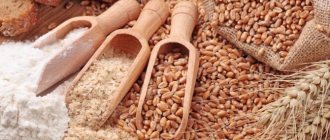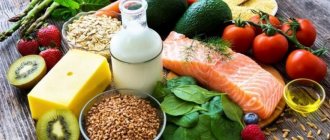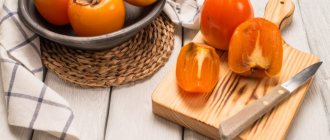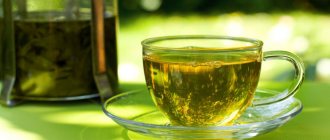What is diarrhea
Diarrhea (colloquially called diarrhea) is a change in the appropriate consistency of stool.
Although this pathology is common (3-5% of the population), there are a lot of concomitant diseases for differential diagnosis, their sum reaches several hundred nosologies.
There are three types of diarrhea: liquid, fatty (malabsorption) and inflammatory etiology (with the presence of blood and pus in the stool).
However, not all cases of diarrhea strictly fit into these categories - there are combined cases. Liquid diarrhea is divided into osmotic (water retention due to poor absorption of nutrients), secretory (decreased water absorption) and functional (intestinal hyperkinesia).
A syndrome characterized by the acute development of watery diarrhea without blood (three or more loose stools per day).
Causes of diarrhea
Diarrhea occurs for various reasons. It usually occurs due to poor diet, poisoning of the body and some infectious diseases that affect the condition of the intestines.
Most often, a diet for upset stomach and intestines is prescribed depending on the cause of loose stools. Here are the main reasons that cause diarrhea:
- heavy food, overeating. It most often causes diarrhea;
- consumption of vegetables, soups, liquid foods, dried fruits, such as dried apricots or prunes;
- individual intolerance to some components;
- bowel irritation;
- mild food poisoning;
- intestinal dysbiosis;
- pancreatitis;
- use of sweeteners;
- use of medications and laxatives;
- gastritis and intestinal diseases;
- stomach ulcer due to Helicobacter pylori bacteria;
- in women – pregnancy, premenstrual syndrome and hormonal imbalance;
- poor quality and irregular food;
- severe degree of toxin poisoning.
If diarrhea is not caused by acute poisoning or intestinal diseases, then with proper nutrition it passes quickly, without causing additional unpleasant symptoms.
In such a situation, special nutrition for diarrhea in an adult is not needed: it is enough to consume liquid and absorbent agents , for example, activated carbon, to remove all the unpleasant symptoms.
If diarrhea does not go away and is accompanied by other symptoms (dizziness, nausea, vomiting), you need to urgently change your diet.
Features of nutrition for diarrhea in a child
Frequent loose stools in children quickly lead to dehydration, weight loss, and weakening of strength.
Many children with diarrhea do not feel hungry and refuse offers to eat. This leads to the fact that the lack of much-needed nutrients (nutrients) will become very severe. Refusal to eat and poor nutrition increases the risk of serious consequences: the child may develop weakness, decreased immunity, develop a general nutritional deficiency with weight loss, profound disturbances in the functioning of the body, and problems with the nervous system (tearfulness, drowsiness, lethargy). Such consequences can delay the physical and mental development of a child, especially a small one, up to 5 years of age1.
Therefore, it is important to follow the principles of diet and feeding frequency.
- Feed the baby at least 7 times a day.
- Offer food, especially if the child does not ask for food. From the list of allowed products, you can choose those that your child likes and offer them more often. Let your child happily drink jelly several times a day or eat a spoonful of cottage cheese with blueberries rather than give up boiled cabbage or soup1.
- The volume of food eaten at one time should be reduced so as not to cause excessive stress on the digestive organs1.
- If the child is breastfed, then there is no need to switch him to formula: mother’s milk provides everything necessary for the body to function and at the same time provides everything that helps restore intestinal function1.
- After one year, the child should be encouraged to drink more often. Unsweetened compote, clean drinking water, and pharmaceutical powders are suitable for preparing a solution for dehydration.
- Food needs to be crushed: vegetables into puree, porridge - until it becomes a mess. This will ensure mechanical sparing of the intestines1.
- Many children with diarrhea eat better salted foods, and WHO recommends adding a little salt to liquid dishes1.
- When the child’s condition improves, you can gradually expand the range of foods, grinding the food not to puree, but leaving pieces. This is necessary to resume normal peristalsis. But you need to remember that a too rapid (for example, within one day) transition from dietary nutrition to regular food can cause a deterioration in the child’s condition, up to the return of diarrhea. On average, returning to a child’s usual food takes about 5-7 days1,4,7.
- After recovery for 2 weeks, WHO recommends feeding the child 1 time per day more often than before the illness. This will help restore body weight and the supply of substances necessary for normal functioning of the body, growth and harmonious development1.
What examinations need to be done (diagnosis)
The first step to making a diagnosis is a thorough history. It is important to collect an epidemiological history, including information about recent travel.
Staying in the tropics significantly expands the list of diseases for differential diagnosis, but does not allow us to exclude common etiologies. Thus, bloody diarrhea after traveling to Africa is most likely caused by ulcerative colitis rather than amoebic dysentery.
Physical examination:
During a physical examination, additional clues are often found to determine the cause of diarrhea. If postoperative scars (surgical cause of diarrhea), increased peristalsis (auscultation), pain on palpation (infection and inflammation), space-occupying lesions are detected, a rectal examination and fecal occult blood test .
Fistulas in the anal area are characteristic of Crohn's disease. During sigmoidoscopy, ulcers or fecal impaction can be detected; the latter symptom is a common cause of pseudodiarrhea or paradoxical diarrhea.
Laboratory examination:
Basic laboratory examination includes a complete blood count with ESR, determination of the level of albumin, liver enzymes, thyroid-stimulating hormone and electrolytes.
Basic principles of nutrition for diarrhea in adults
Nutrition serves the following purposes:
- provide the body with all the necessary dietary fiber for normal digestion;
- relieve the load on the digestive tract as much as possible, which is achieved by special selection of products and their culinary processing (food is boiled in water or steamed, served pureed);
- improve the overall functioning of the entire gastrointestinal tract.
The irritated mucous membrane of the small intestine requires neutral food that would not irritate it, but, on the contrary, soothe and envelop it. Therefore, with loose stools, patients are prescribed diet No. 4, which provides maximum mechanical and chemical sparing of the intestines and a reduction in fermentation processes in it.
As a result of the processes of fermentation and putrefaction (they occur when taking large amounts of carbohydrates and fresh milk), a large amount of gases are released in the intestines, which stretch and irritate the intestinal wall.
What to eat on diet number 4:
- stale white bread or white bread croutons;
- ground lean meats and fish in the form of steamed meatballs or boiled meat souffle;
- soups in weak meat, fish or vegetable broth with boiled cereals (for example, rice);
- freshly prepared cottage cheese, pureed through a sieve;
- boiled or steamed eggs;
- pureed porridge cooked in water;
- weak tea, unsweetened and unconcentrated compotes from dried fruits or fresh apples, jelly;
- mashed raw and baked apples.
What to exclude from your diet:
- any flour products (except those permitted);
- fatty, rich soups and borscht with vegetables, strong broths of meat, fish, vegetables or mushrooms;
- fatty meat, fatty fish;
- canned and smoked products;
- milk and dairy products (except cottage cheese);
- some cereals (millet, wheat groats);
- cereals (beans, lentils, beans), pasta;
- vegetables, fruits and berries, raw and not pureed;
- everything sweet, carbonated drinks, cold dishes.
The list of prohibited foods for diarrhea can be continued for a very long time. The main thing when you have diarrhea is not to eat anything that can irritate the intestines and cause discomfort. It is advisable to drink plenty of fluids.
Diet for irritable bowel syndrome (IBS) with flatulence
If you have IBS with flatulence, you should avoid heavy food, as it is poorly absorbed by the body. Fried food, fast food, confectionery, chips, etc.
contain a huge amount of fats and trans fats, which can worsen the patient’s condition. In addition, spicy foods, alcohol, coffee and even bread (due to the gluten content) can cause harm. Dairy products can also make irritable bowel syndrome worse. It is not forbidden to drink herbal infusions and infusions. In case of SRS with flatulence, it is necessary to follow a special diet containing the consumption of foods that can pass more gently through the digestive tract:
- bananas;
- avocado;
- apples;
- grape;
- yogurt;
- berries;
- rice;
- fish;
- salad.
If the patient suffers from frequent constipation, then it is important to choose foods with highly soluble fiber:
- strawberry;
- orange;
- cucumber;
- celery;
- potato.
Sample daily menu for diarrhea
Daily meals for diarrhea in adults:
- First breakfast: 2 soft-boiled eggs or an omelet of 2 eggs, steamed oatmeal, white bread crackers, weak tea;
- Second breakfast: curd pudding, orange or apple juice half diluted with water;
- Lunch: rice soup, boiled fish or steamed cutlet, mashed potatoes, jelly;
- Afternoon snack: biscuits and mashed baked apple;
- First dinner: steamed chicken cutlets with pureed buckwheat porridge, a glass of unsweetened rose hip broth;
- Second dinner (an hour later): blueberry, quince or pear jelly.
What can and should you eat if you have diarrhea?
Dietary nutrition for diarrhea includes a diet of medicinal dishes, a properly organized drinking regime, as well as permitted foods that diversify the menu.
Medicinal products
Some dishes can be eaten in case of poisoning and diarrhea without restrictions, as they have an effective therapeutic effect and are a natural cure for a diseased intestine. These include fixing products:
- Loose stools are perfectly fixed by rice porridge and rice water. It is important to consume them without salt, oil and sugar;
- on the first day of illness you need to eat white crackers with black tea - the most gentle diet on the first day of illness;
- whey is a source of protein and also has the ability to block putrefaction processes, destroy pathogenic flora, and promote the development of beneficial microorganisms;
- Healing berries for diarrhea are blueberries and bird cherry, but eating them fresh is not as healthy and nutritious as jelly and compotes made from them;
- It is useful for a poisoned person to eat bananas and baked apples during diarrhea - they contain pectins that can cleanse the intestines of toxins and poisons.
Drinking regime
With diarrhea, a large volume of fluid is lost, which must be constantly replenished. Microelements and vitamins leave the body with liquid - and this also needs to be taken into account when organizing the drinking regime. You can calculate the required amount of liquid in this way: a healthy person needs to drink 350 ml of liquid per day for every 10 kg of his weight. With diarrhea, this norm increases by 150 ml, so a person with an average weight of 60 kg needs to drink at least 3 liters of liquid per day to prevent dehydration.
The healthiest drink is solutions of glucose and salt, which can be prepared at home: per liter of water take 10 g of salt, 5 g of soda, 2-3 g of potassium chloride, 50 g of granulated sugar. You should drink 1-2 glasses of this solution before each meal in the first days of illness. The salt in this solution will help retain fluid in the body, and the presence of potassium helps maintain the water-salt balance. Orange juice or dried apricot compote can fill the body's need for potassium.
Pomegranate juice and infusion of pomegranate peels have a strengthening effect. Rose hip decoction is a source of vitamin C, tea made from raspberry leaves, wheat bran, and corn silk have an enveloping effect and relieve irritation of the intestinal mucosa. For diarrhea during pregnancy, it is useful to drink chamomile and mint teas.
What foods are allowed for diarrhea?
Diet for diarrhea in adults cannot be called varied. Because the list of permitted products is small:
- In the first days, mucous porridges in water should prevail, which have a fixing, enveloping effect and are a source of essential carbohydrates and vitamins. Rice, oatmeal, buckwheat, and semolina porridge are allowed.
- Liquid soups based on weak vegetable and meat broths with the addition of small pieces of well-cooked potatoes and cereals. Soups should not be fried or seasoned with spices.
- Hard-boiled eggs and steamed omelets are sources of animal protein; they are allowed on the 2-3rd day of illness.
- For diarrhea, eat dietary meat (chicken, veal, rabbit, turkey). It is used in crushed form (cutlets, meatballs), and dishes are prepared in a double boiler.
- Low-fat fish varieties are allowed: hake, cod, flounder, pike, pike perch. The fish is served boiled or made into cutlets and meatballs.
- If you have diarrhea, eating white dried bread, lean cookies, and crackers does not cause any harm.
- Among the vegetables that are useful for intestinal upset are: potatoes, pumpkin, zucchini, carrots. They must be boiled, pureed, added to main courses and soups.
- Fermented milk products (kefir, cottage cheese) should be consumed with caution; they should have low fat content.
- You can use berry jelly, mousses, jellies for diarrhea - they are a source of vitamins and pectins.
Folk remedies for the treatment of diarrhea
Rice water - probably many have heard about such a popular remedy for diarrhea as rice water.
This drink is much more effective than many advertised tablets and does not cause any harm to the body. And, if we are talking about the advantages, then it is impossible not to mention that this remedy saturates the body well with useful substances that are so necessary during diarrhea.
The recipe for such a useful medicine is simple:
To begin with, you should take a pan (preferably enameled), pour 0.5 liters of water into it and put it on fire. Then, two small spoons of rice, which was previously soaked in cold water, should be placed in boiling water. The potion must remain on the fire for at least fifty minutes. During this time, it needs to be stirred periodically.
The finished infusion is cooled and filtered through a tea strainer. It is worth taking depending on age. Adults – 150 ml. – every 3 hours a day. Children can be given from 50 to 100 ml. 3-4 times a day. Usually, an hour after use, the condition improves. You not only need to drink the infusion, but also eat some rice. This product is also good for children because it does not cause allergies. After improvement, you can replace the decoction with tea with simple crackers.
Bird cherry – Another great remedy for eliminating diarrhea is bird cherry. This is how people were treated in ancient times. Today, for proper treatment, it is worth using the bark and flowers of the plant. But you should drink such a decoction only if the diarrhea is non-infectious.
Making a medicinal drink at home is quite simple. You need to rinse the grapes under the tap. Pour them into a glass halfway. Then fill the pan with the contents of the glass in which the product will be prepared.
You also need to pour 2 glasses of hot water directly there, and then put it in a water bath for half an hour. After this, the broth should stand under the lid for about 30 minutes. Next, the drug needs to be strained. Be sure to mix the drink with the same amount of blueberry juice.
The resulting product will simply become an indispensable assistant in the fight against diarrhea in adults. This drink should be taken every hour, 1 tablespoon.
Pomegranate infusion - pomegranate peels have beneficial properties in the treatment of diarrhea. They need to be prepared in advance. To do this, you need to cut off the red layer of the pomegranate and dry it in the oven.
To prepare a medicinal decoction, the peels need to be ground to a powder and boiled in a water bath for a quarter of an hour, after pouring boiling water over them. You need to take a small spoon only once a day. Repeat the procedure until the patient recovers completely.
How to properly prepare rice water for diarrhea
The ideal product for diarrhea in a child is rice. It is rich in carbohydrates and protein. But the most important thing is that it holds together perfectly. If the diarrhea is very severe, then on the first day you can give the patient only rice water.
To prepare it, rinse 200 grams of regular white rice in water, add 600 ml of water and cook over low heat. Add half a teaspoon of salt. Without waiting for complete cooking, you should turn off the heat and let the broth steep for an hour or two. Then drain the liquid and give it to the child half a glass every two hours. In most cases, bouts of diarrhea stop the same day. The next day the condition will have stabilized, and you can give the child regular boiled rice to eat. For taste, you can add steamed peeled pear or similarly processed banana.
When does a person need medical help?
In some cases, you simply cannot do without the help of specialists. You should call a doctor when the diarrhea does not stop and all the above remedies do not help. Under no circumstances should this be delayed. There are examples when people who ignored seeking qualified help died.
The most serious sign is blood in the stool.











